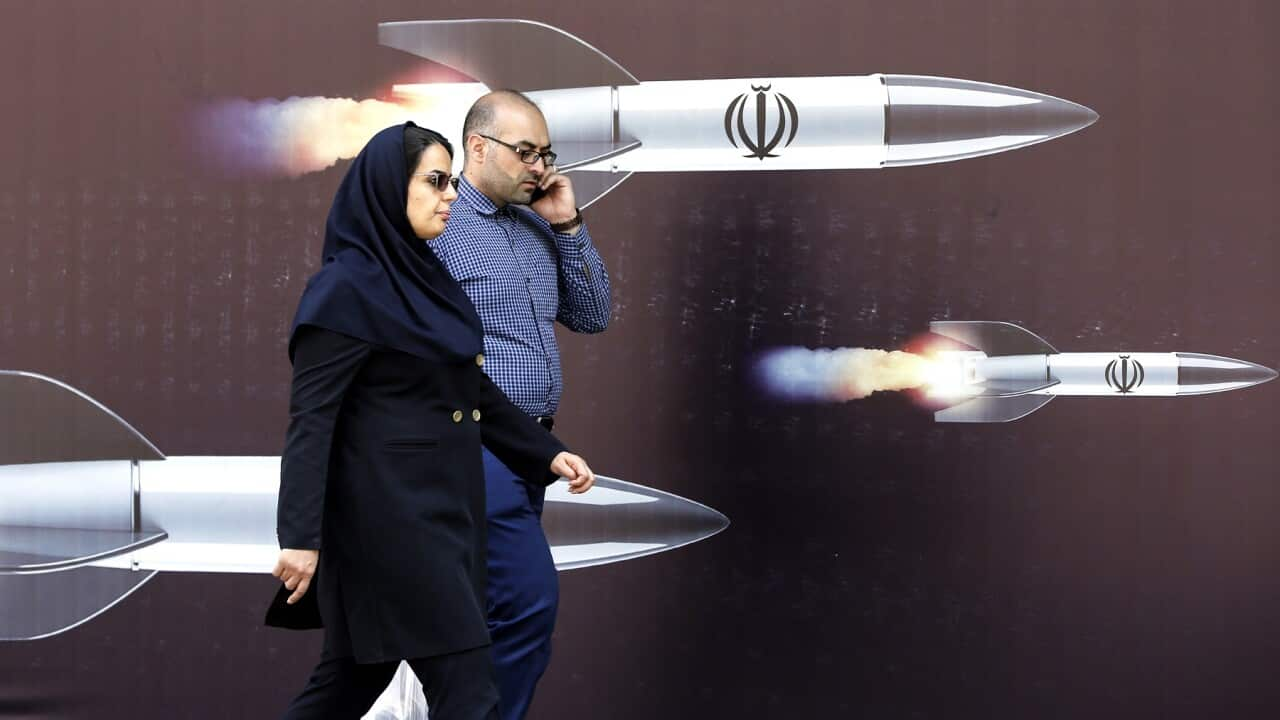TRANSCRIPT:
Israel had said it would retaliate after a strike by Iran on April 13, the first ever direct attack.
Now, Iranian media and officials have described a small number of explosions, which they said resulted from air defences hitting three drones over Isfahan in central Iran.
Iranian officials have sought to play down the offensive.
Iran's foreign minister, Hossein Amirabdollahian, has told NBC News what happened overnight was not an attack.
FM: "What happened last night was not a strike."
Reporter: "But did any other country tell you something was happening, and they were going to invade your airspace and attack possibly one of your bases?"
FM: (Laughs) "They are more like toys that our children play with. It was not worth telling us before it happened."
Israel has not claimed responsibility.
But Israeli Prime Minister Benjamin Netanyahu has posted an image of himself on the X social media site, pouring over a pixelated document with the caption Shabbat Shalom.
Despite U-S officials saying Israel carried out military operations, Iranian authorities and state media say no damage has been caused, and are reporting the explosions in Isfahan were the result of air defence batteries activating.
Iran's Foreign Minister says it has not been proven that there is a connection between these explosions and Israel.
Reporter: "Is Iran done for right now sending any more missiles or attacking Israel?
FM:"If Israel retaliates and comes up with a new adventurism then we will respond, but if not then we are done. We are concluded."
The White House was informed minutes before the strike happened.
Speaking at the G-7 summit in Italy, U-S Secretary of State Antony Blinken has remained tight-lipped about the explosions.
"I'm not going to speak to that. Except to say that the United States has not been involved in any offensive operations. What we're focused on, what the G7 is focused on, and again, it's reflected in our statement and in our conversation, is our work to de-escalate tensions."
World leaders are echoing that sentiment, calling for calm.
The concern is that the shadow war between Israel and Iran may resume with proxy attacks and targeted assassinations, but that the rules of engagement have changed with both countries willing to strike each other directly, making the Middle East even less stable.
United Nations Spokesperson Stéphane Dujarric says U-N Secretary General Antonio Guterres condemns any acts of retaliation.
"As you saw, we issued a statement this morning in which the Secretary-General reiterated that it is high time to stop the dangerous cycle of retaliation in the Middle East. The Secretary-General condemns any acts of retaliation, appeals to the international community to work together to prevent any further development that could lead to devastating consequences for the entire region and beyond."
It's not clear if the strike is the entirety of Israel's retaliation, or just a test of Iran's air defences.
Australia's federal government has meanwhile updated its travel advice, saying Australians citizens should strongly consider leaving Iran as soon as possible.
Dependants of Australian officials in Iran are being offered a voluntary return home, while diplomats have been told to remain in Tehran and not travel outside the region.
Associated Press reporter Sam Mednick spoke to The World Today from Jerusalem, saying this is still an evolving situation.
"So what we know is that Iran Islamic state media said they heard explosions over the central city of Isfahan. And that some flights, commercial flights have been diverted over western Iran. Iran has also activated its defence system, but we don't know what this attack was targeting and we're can't 100 per cent confirm who is behind the attack yet, but this comes days after Israel said that it was going to retaliate on Iran for Iran's missile strike on it over the weekend."













